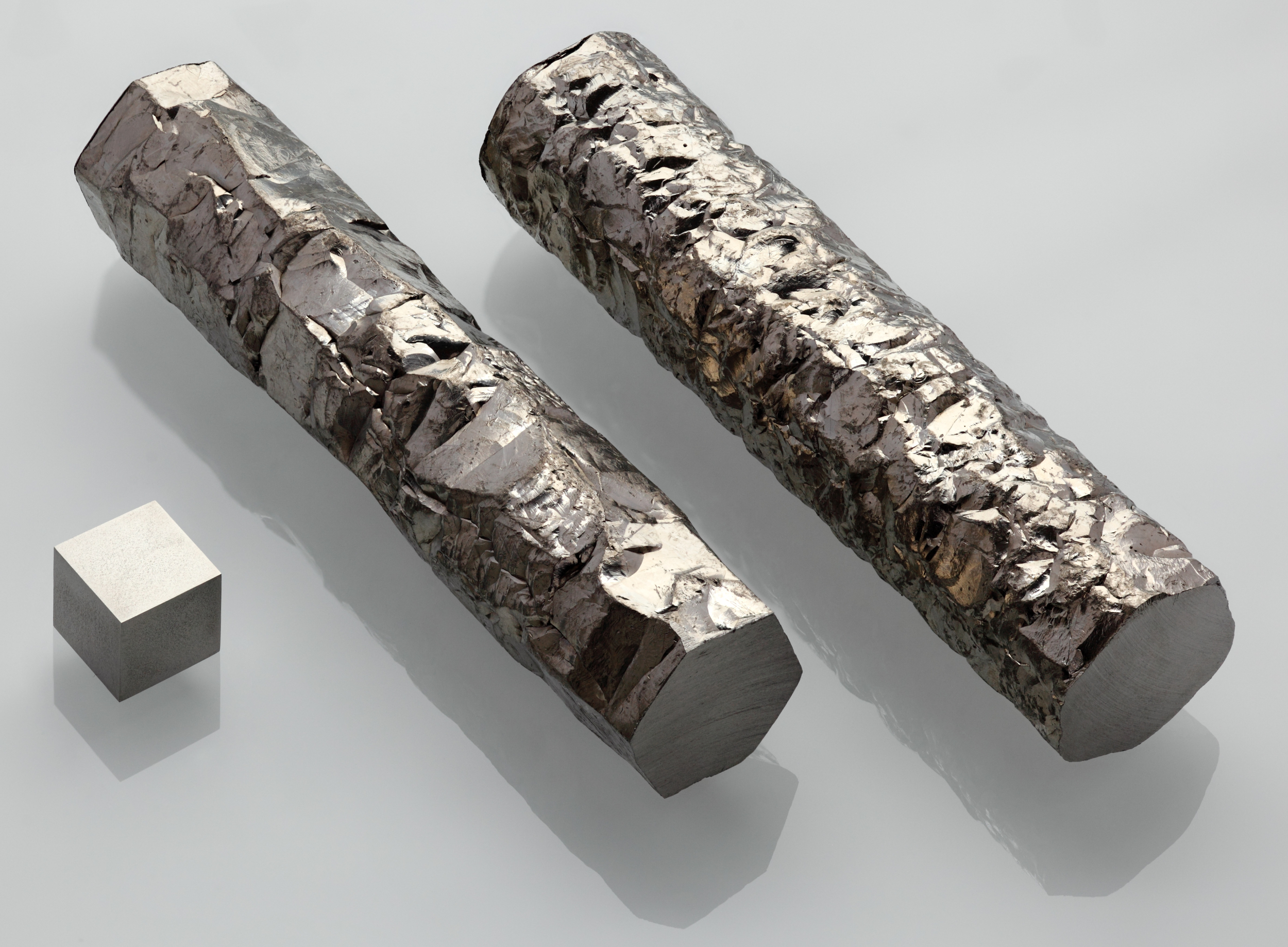Copyright International Business Times

The Mineral You've Never Heard Of If you're like most people, you've never given zirconium a second thought. You might have some in your bathroom tiles, your toilet, or even your dental crowns. It seems like the most ordinary material imaginable. But this unassuming mineral has become central to one of the most significant national security concerns facing Australia — and the West — today. An investigation by ABC's Four Corners program has revealed that Australian-mined zirconium is feeding China's weapons development, including its hypersonic missile program and nuclear technologies, even as Australia strengthens its strategic partnership with Washington through AUKUS. The most shocking part? Chinese companies now control significant stakes in the Australian mines producing this strategic material, and they're shipping 100% of their output to China. Why Zirconium Matters for Weapons Zirconium might sound boring, but its properties make it absolutely critical for advanced military systems. For Nuclear Programs: Zirconium's low neutron absorption and high thermal resistance make it indispensable for manufacturing nuclear fuel rods. "Historically, up to 90 percent of global zirconium production has been consumed by the nuclear industry," according to Stanford Advanced Materials. The processed form, known as zirconium sponge, wraps nuclear fuel rods used in both civilian power plants and military reactors — including nuclear-powered submarines, aircraft carriers, and nuclear weapons programs. For Hypersonic Missiles: The mineral's heat resistance makes it essential for hypersonic missile components, which must withstand temperatures exceeding 2,000 degrees Celsius during flight. These missiles can travel at five times the speed of sound and are nearly impossible to defend against. A paper by China's National University of Defence Technology — a research arm of the People's Liberation Army — recently stated that the allocation and use of zirconium "has become a critical issue for ensuring national security and advancing military technological progress." The paper added: "As a major importer and consumer of zirconium ... China is facing severe challenges to resource security." Australia's Dominant Position Here's where things get interesting: Australia controls 74% of the world's zirconium reserves. China, by contrast, has less than 1% of global deposits. Australia supplies 41-56% of China's zirconium imports, making it by far China's most important source for this critical mineral. Western Australia's mineral sands deposits contain the world's largest accessible reserves. For China, which imports over 95% of its zirconium needs with annual demand approaching 300,000 tonnes, securing access to Australian supply is a strategic imperative. The Chinese Takeover Two Australian mining companies with Chinese ownership have become central to the controversy: Image Resources (ASX: IMA): China's LB Group is the largest shareholder in this Australian-listed company, which operates the Atlas Mine in Western Australia. The company ships 100% of its zirconium production to China. Remarkably, Image Resources' annual reports previously promoted potential military applications, explicitly stating that zirconium could be used in "nuclear energy, jet engines, rockets, and hypersonic vehicles." In 2017, company leadership acknowledged that their primary customer represented one of China's only companies licensed to produce nuclear-grade zirconium sponge. LB Group's annual reports detail 11 pages of Chinese government support, including payments for strategic emerging industries and development of nuclear-grade zirconium sponge. Sheffield Resources: Another Western Australian miner with significant Chinese investment interest, also operating in the critical minerals space. The Russia Connection That Changes Everything Perhaps most alarming is the Russia angle. According to ABC's investigation, China has increased its zirconium supply to Russia by 300% since the start of the Russia-Ukraine conflict. Image Resources' largest shareholder — LB Group — reportedly transferred over $5 million worth of zirconium to Russia during this period, making it a significant player in this expanded trade relationship. This means Australian minerals, mined with Australian government subsidies, may be indirectly supporting Russian weapons programs currently being used in Ukraine. The revelation has sparked outrage from critics including Australian activist Drew Pavlou, who wrote on social media: "Holy shit, the entire Chinese hypersonic missile program is completely dependent on AUSTRALIAN CRITICAL MINERAL EXPORTS and the Australian government SUBSIDISED THE MINES." The AUKUS Contradiction The situation is particularly awkward given Australia's central role in AUKUS — the trilateral security partnership with the United States and United Kingdom announced in 2021. AUKUS is explicitly designed to counter China's military expansion in the Indo-Pacific. Under the agreement, Australia will acquire nuclear-powered submarines and develop advanced military capabilities including hypersonic weapons. Yet even as Australia strengthens military ties with Washington and London to counter Beijing, it continues selling China the critical materials it requires to develop those very same weapons systems. Defense Minister Richard Marles has acknowledged the contradiction but described it as unavoidable: "China is our largest trading partner on the one hand, and our biggest source of security anxiety on the other. And that's just the way the world is." Military strategist David Kilcullen put it more bluntly: "Everything now, not only in nuclear technology, but writ large, is dual use. That's particularly true of nuclear capability." He noted that China's military-civil fusion doctrine "puts commercial companies and commercial tech development under the control of the military," making it nearly impossible to separate civilian from military end-uses. How Did This Happen? The answer involves a combination of factors: Economic Incentives: China is Australia's largest trading partner, accounting for a significant portion of Australian exports. Mining companies naturally gravitate toward their biggest customer. Government Support: Both Australian and Chinese governments have provided financial support for these mining operations. Critics argue Australian taxpayers are subsidizing China's weapons programs. Regulatory Gaps: Australia's Foreign Investment Review Board (FIRB) approved Chinese investments in these mines without apparently considering the strategic implications for defense and dual-use minerals. Lack of Export Controls: Until recently, Australia has not imposed meaningful restrictions on exports of zirconium or other critical minerals with military applications. The Dual-Use Dilemma The challenge with zirconium — and many critical minerals — is that they have both civilian and military applications, making export controls complex. Zirconium is legitimately used in: Ceramic tiles and bathroom fixtures Dental crowns and medical implants Jewelry and watches Industrial applications But the same material also goes into: Nuclear fuel rods for reactors and weapons Hypersonic missile components Naval reactor systems Advanced military equipment Once zirconium leaves Australia, there's no practical way to ensure it stays in civilian supply chains rather than being diverted to military uses. China's military-civil fusion doctrine explicitly requires civilian companies to support military objectives when called upon, making any distinction between civilian and military use essentially meaningless. The Broader U.S.-Australia Critical Minerals Deal Ironically, the zirconium controversy comes just weeks after President Trump and Australian Prime Minister Anthony Albanese signed an $8.5 billion critical minerals agreement at the White House. That October 20, 2025 deal was explicitly designed to reduce Western dependence on China for rare earths and critical minerals. Trump boasted: "In about a year from now we'll have so much critical mineral and rare earth that you won't know what to do with them." The agreement came shortly after China imposed strict export controls on rare earths, threatening global supply chains and pushing the U.S. and China toward renewed trade conflict. Kevin Hassett, director of the White House's National Economic Council, said at the time: "Australia is really, really going to be helpful in the effort to take the global economy and make it less risky, less exposed to the kind of rare earth extortion that we're seeing from the Chinese." Yet the zirconium situation reveals that while Australia talks about reducing Chinese mineral dominance, Chinese firms already control key Australian mines producing materials for China's military. What the Investigations Found ABC's Four Corners investigation, titled "Trading Fire," spent several months analyzing corporate records to trace the global path of zirconium from Western Australia's sands to Chinese processing facilities and potentially to weapons programs. Reporter Angus Grigg and the production team examined: Corporate ownership structures showing Chinese control Export data revealing 100% of output going to China Chinese government subsidy payments to mining companies Trade flows showing increased shipments to Russia Chinese military research papers citing zirconium's strategic importance The program raised urgent questions about whether Australia should impose tighter export controls on critical minerals with potential defense applications. The Stock Market Reaction Shares in Image Resources and Sheffield Resources surged after being featured in the ABC investigation, with investors apparently betting that government intervention could lead to buyouts or restrictions that might benefit shareholders. The mining industry publication Mining News noted the stock price boom with the headline: "Warning sounded over China's control of Australian zirconium." Industry analysts expect the government will face pressure to act, either by imposing export controls, buying back Chinese stakes, or restricting future foreign investment in critical minerals. What China Says Chinese officials have pushed back against suggestions that critical minerals should be restricted. When asked about the U.S.-Australia minerals agreement, Foreign Ministry spokesperson Guo Jiakun said: "The formation of global production and supply chains is the result of market and corporate choices. Resource-rich nations with critical minerals should play a proactive role in safeguarding the security and stability of the industrial and supply chains, and ensure normal economic and trade cooperation." Translation: China believes Australia should keep selling it strategic minerals regardless of security concerns. What Experts Recommend Security analysts and defense experts have called for immediate action: Export Controls: Implement strict export controls on zirconium and other dual-use critical minerals, similar to controls on military technology. Ownership Review: Conduct a comprehensive review of foreign ownership in critical minerals mining, particularly from strategic competitors. End-Use Certification: Require buyers to certify end-uses and conduct audits to ensure minerals aren't diverted to military programs. Strategic Reserve: Build Australian processing capacity and strategic reserves to reduce dependence on selling raw materials to China. AUKUS Alignment: Ensure critical minerals policy aligns with AUKUS security objectives rather than contradicting them. The Economic Reality Australia faces a genuine dilemma. China is by far Australia's largest trading partner, purchasing: Iron ore for steel production Coal for energy generation Liquefied natural gas Agricultural products Critical minerals including zirconium Restricting these exports could trigger Chinese retaliation affecting billions of dollars in Australian trade and thousands of jobs. Yet continuing to supply materials for China's military modernization while simultaneously preparing to defend against potential Chinese aggression creates an absurd contradiction. As one analyst noted: "We're essentially funding our potential adversary's military while spending billions on our own defense." What Happens Next The ABC investigation has sparked intense debate in Australia about critical minerals policy. Several developments are likely: Parliamentary Inquiry: Expect calls for a parliamentary investigation into Chinese ownership of critical minerals assets and export controls. FIRB Review: The Foreign Investment Review Board may face pressure to review past approvals and tighten criteria for future investments. Export Restrictions: The government may implement new restrictions on zirconium exports, particularly to countries like Russia. U.S. Pressure: American officials will likely press Australia to align critical minerals policy with AUKUS security goals. Industry Pushback: Mining companies will resist restrictions that could reduce their customer base and profitability. The Bottom Line The zirconium story exposes a fundamental tension in Australian policy: the country can't simultaneously be China's major trading partner and America's strategic ally preparing to counter Chinese military expansion. For decades, Australia has tried to balance economic engagement with China against security partnership with the United States. That balancing act is becoming increasingly untenable. As one former defense official put it: "You can't sell someone the rope they'll use to hang you, then act surprised when they start measuring your neck." The question now is whether Australia will prioritize short-term economic gains from Chinese trade or long-term security concerns about empowering a potential adversary's military capabilities. Given that zirconium is irreplaceable for nuclear fuel rods and hypersonic missiles, and that China is completely dependent on Australian supplies, this isn't just an academic debate. It's a decision that could shape the strategic balance in the Indo-Pacific for decades to come.



